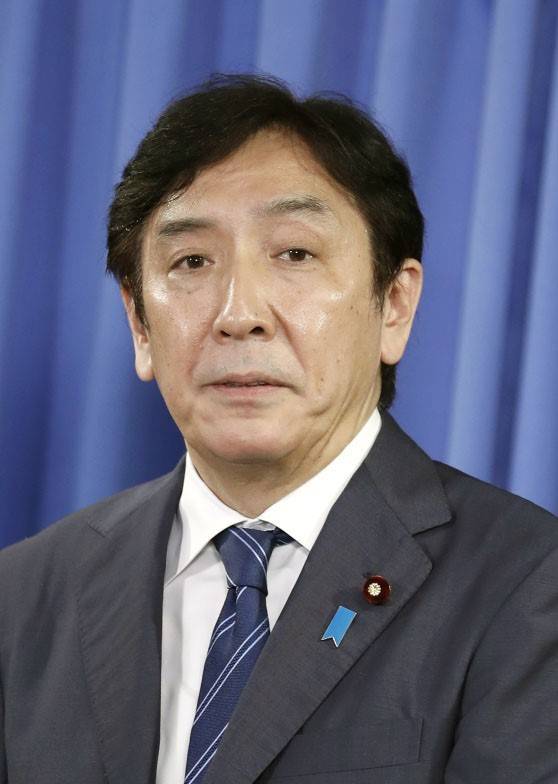Former trade minister Isshu Sugawara has conveyed his intention to resign as a lawmaker after coming under investigation again over a money and gift scandal that prosecutors had once dropped, a senior Liberal Democratic Party official said Tuesday.
LDP policy chief Hakubun Shimomura told reporters that Sugawara has conveyed his decision to quit as a lawmaker.
Prosecutors are likely arranging to issue the LDP lawmaker with a summary indictment for violation of the election law, a source close to the investigation said. A summary indictment is a simplified proceeding that skips court proceedings and applies to less serious offenses.
The move is expected to deal a heavy blow to Prime Minister Yoshihide Suga, who had pushed Sugawara to become trade minister in September 2019.
“I strongly ask him to strive to fulfill his responsibility to explain himself as soon as possible,” Natsuo Yamaguchi, the leader of Komeito, the ruling LDP’s junior coalition ally said earlier.
LDP executives had been making arrangements behind the scenes for Sugawara’s resignation, as they were concerned about the impact of the money scandal on the July election for the Tokyo Metropolitan Assembly as well as a Lower House election that will be held by this fall, sources said.
Sugawara, who stepped down as minister in October 2019 over the scandal, was questioned by prosecutors after a civil inquest body decided in February that he merits indictment. His office is alleged to have offered money and gifts to supporters between 2017 and 2019 in violation of the election law.
The Public Offices Election Law prohibits politicians from making donations to voters in their constituencies, except for money given in person by lawmakers at ceremonies such as weddings and funerals, and violators are fined up to ¥500,000 ($4,500).
In June last year, the special investigation squad of the Tokyo District Public Prosecutors Office decided not to indict Sugawara for giving condolence money and flowers totaling ¥300,000 through his secretary and others to 27 voters from 2017 to 2019.
But the Committee for the Inquest of Prosecution overturned the decision. Such panels, consisting of voters chosen by lottery, are set up to review decisions by prosecutors not to put a suspect on trial if that decision is challenged.
In a time of both misinformation and too much information, quality journalism is more crucial than ever.
By subscribing, you can help us get the story right.
SUBSCRIBE NOW




